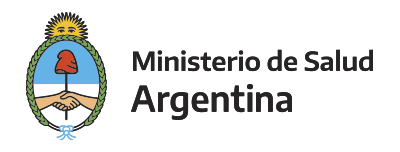Por favor, use este identificador para citar o enlazar este ítem:
http://sgc.anlis.gob.ar/handle/123456789/1936| Título : | Antivenom against Crotalus durissus terrificus venom: Immunochemical reactivity and experimental neutralizing capacity | Autor : | Baudou, Federico Gastón Litwin, Silvana Lanari, Laura Cecilia Laskowicz, Rodrigo Daniel Damin, Carlos Fabián Chippaux, Jean-Philippe de Roodt, Adolfo R. |
Palabras clave : | Venenos de Crotálidos;Antivenenos;Pruebas de Neutralización;Ensayo de Inmunoadsorción Enzimática | Fecha de publicación : | 15-dic-2017 | Journal: | Toxicon | Resumen : | The venom of Crotalus durissus terrificus produces a neurotoxic and myotoxic syndrome that can lead to the death. Specific antivenom is the only treatment to neutralize the toxicity of the venom and the precocity in applying the antivenom is crucial for the efficiency of the treatment. We studied the variation of the immunochemical reactivity and neutralizing capacity of the specific antivenom on this venom in pre-incubation and rescue experiments, at different times. ELISA titers increased with longer venom-antivenom incubation times (p < 0.05) nevertheless incubation times had no effect on the neutralizing capacity of the antivenom. The antivenom dose necessary to rescue mice injected with 1.5 MMD (minimal mortal dose) 30 min after venom inoculation was over ten folds the dose of antivenom theoretically required to neutralize the same dose of venom according values obtained from pre-incubation experiments. Results showed that the in vitro immunochemical reactivity is not directly related to the neutralizing capacity. These observations underline the need for a rapid antivenom administration. Although preincubation experiments in mice are a powerful tool for the validation of the potency of the antivenoms in the productive process, it is clear that the nominal neutralization of the antivenoms must not be considered as a "stoichiometric" value regarding the venom to be neutralized in case of natural envenomation and emphasize the need of realization of clinical trials in order to evaluate the adequate doses of antivenom to be therapeutically used. |
Descripción : | Fil: Baudou, Federico Gastón. ANLIS Dr.C.G.Malbrán. Instituto Nacional de Producción de Biológicos. Área Investigación Desarrollo / Venenos; Argentina. Fil: Litwin, Silvana. ANLIS Dr.C.G.Malbrán. Instituto Nacional de Producción de Biológicos. Servicio de Sueros Terapéuticos; Argentina. Fil: Lanari, Laura Cecilia. ANLIS Dr.C.G.Malbrán. Instituto Nacional de Producción de Biológicos. Área Investigación Desarrollo / Venenos; Argentina. Fil: Laskowicz, Rodrigo Daniel. ANLIS Dr.C.G.Malbrán. Instituto Nacional de Producción de Biológicos. Área Investigación Desarrollo / Venenos; Argentina. Fil: Damin, Carlos Fabián. Universidad de Buenos Aires. Facultad de Medicina. Primera Cátedra de Toxicología; Argentina. Fil: Chippaux, Jean-Philippe. Institut de Recherche pour le Développement. UMR 216-MERIT; Francia. Fil: de Roodt, Adolfo R. ANLIS Dr.C.G.Malbrán. Instituto Nacional de Producción de Biológicos. Área Investigación Desarrollo / Venenos; Argentina. |
URI : | http://sgc.anlis.gob.ar/handle/123456789/1936 | ISSN : | 0041-0101 | DOI: | 10.1016/j.toxicon.2017.10.009 | Derechos: | Closed Access |
| Aparece en las colecciones: | Publicaciones INPB |
Mostrar el registro Dublin Core completo del ítem
Visualizaciones de página(s)
154
comprobado en 15-feb-2026
Google ScholarTM
Consultar
Altmetric
Altmetric
Los ítems de DSpace están protegidos por copyright, con todos los derechos reservados, a menos que se indique lo contrario.

